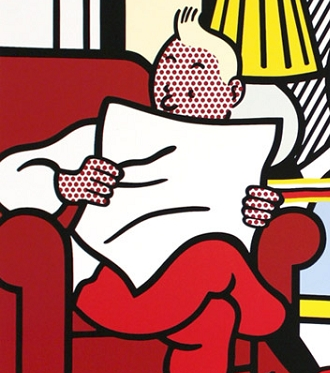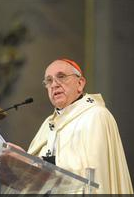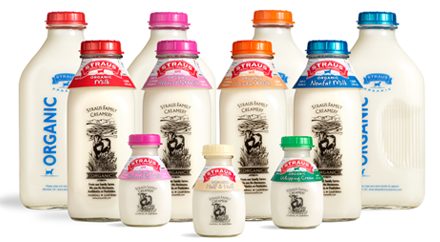Slightly condensed from an article in the March 1949 American Legion Magazine by Paul Gardner
In mid-summer of 1946 Bill Veeck limped into Cleveland to head up a syndicate which had bought out the 6th place Indians. Two-and-a-half tempestuous years later he had engineered a miracle of baseball money-making, attracting the greatest crowd ever to see one game, 86,288 and the largest season home attendance for any club, 2,640,000. Meanwhile the team under manager Lou Boudreau swept to the world championship.
How has he been able to cut loose from the curse of dignity and self-importance? Most club presidents have remained aloof from the throng, acting more like distant financiers or captain of industry than showmen. Why has Bill Veeck not set up the barriers between himself and the fans which other club presidents elect?
His father, William Veeck, Sr., was president of the Chicago Cubs of the National League, and young Bill who was himself treasurer of the Cubs, knows his way around a big-league front office blindfolded. But in spirit he is a perennial sophomore…and would be whether it was a good business or not. He is the emotional twin of the most exuberant baseball fan –delirious in victory, inconsolable in the feet, blindly loyal.
I watched him on the evening following the fourth game of the World Series last fall, a game in which Cleveland went ahead of Boston, three games to one. The president was not in the counting house counting his money, he was dancing wildly on his artificial leg in the assembly room of the Hotel Hollenden in Cleveland. His right leg, injured by the recoil of an artillery piece when Veeck served with the Marines on Bouganville in the Solomon Islands, had been whittled away many times to stabilize the improperly healed wound. His doctor had warned him to lie on his back for a year in a warm climate, but on this night he danced madly, risking his health to express the joy he felt in common with the people of Cleveland. He outlasted every able-bodied fellow on the floor as he stamped about with one partner after another.
For two years Veeck had attended Kenyon College in Gambier, Ohio. He is recalled as a prankster –but not by everybody.] One college chum recalls that Vic impressed him as “a serious guy who didn’t want you to know he was a serious guy.” A fraternity brother would not have been surprised “if Veeck turned out to be a circus clown or a banker.” This was an able prophecy, since he has managed to be a little of both as a baseball executive. Jack Stickney told me that the college legend that Veeck leaped out of a fast-moving car one night while riding in a rumble seat with a blind date is absolutely true. I then checked this yarn with Veeck, and he nodded.
“Why did you do it?” I asked him.
He shrugged. “I didn’t like the doll.”
The original family name had been Vander Veeck, of Dutch origin. William Veeck, Sr., been a reporter on the Louisville Courier-Journal, then shifted to a sportswriter’s job on the Chicago American. His constructive criticism of the Chicago Cubs baseball team so impressed owner William Wrigley that he finally asked Veeck, Sr. to head the Cubs organization. It was a wise move. In 1929 and 1932 the Cubs won the National League pennant.
The elder Veeck died in 1933 when Bill was a sophomore at Kenyon. He had never shown the slightest interest in professional baseball while his father lived, but when his father died he dropped out of college and joined the Cubs organization at age 19. He was treasurer of the club at the age of 26. In 1940 he borrowed $130,000 and purchased the Milwaukee Brewers of the American Association. There he busted loose with the kind of showmanship and baseball manipulation which he later displayed in Cleveland. By 1942 Milwaukee was making money and winning pennants. In 1945, while he was in the Marines, Veeck sold the Brewers at a nice profit.
Veeck settled briefly in Tucson, but he was too restless to follow doctor’s orders. He moved to Cleveland while still on the mend and put together a syndicate in which Bob Hope was a major –and an excellent source of free publicity.
Veeck says his happiness peaked not in the moment the Indians won the World Series but afterwards, riding with the team down Euclid Avenue.”A third of the population of the city came out to see us,” be recalls, “all grinning all laughing.”
Captions of pix accompanying the American Legion Magazine story inform us that “To introduce more ladies to baseball, Veeck gave away 20,000 orchids” on one occasion and 500 pairs of nylons on another. And he arranged for a day-care center to be installed at Municipal Stadium!
Elsewhere in the Toy Department
David Aldridge of the Athletic (the NY Times’s non-union source of sports coverage) explained “The NBA’s 180 on Load Management” in a long essay Oct. W. It turns out everybody is just “following the science.”
Until recently “the data” showed that rest had a restorative effect. Many teams even canceled morning shoot-arounds so players could get more sleep. But now, according to Joe Dumars, the NBA’s executive vice president of basketball operations, the data seem to have done an about-face. Dumars told reporters in a conference call, “Before, it was a given conclusion that the data showed that you had to rest players a certain amount, and that justified them sitting out…We’ve gotten more data, and it just doesn’t show that resting, sitting guys out correlates with lack of injuries, or fatigue, or anything like that. What it does show is maybe guys aren’t as efficient on the second night of a back-to-back.”
NBA Commissioner Adam Silver was on the conference call, too, introducing the league’s new ‘Player Participation Program’ decreed the league’s Board of Governors last month. “‘Honestly, that’s what I’d been told as well, that it was the science,’” Silver said ‘I think it may be why the league didn’t become involved maybe as deeply as we should have earlier on. Part of the discussion today was about the science, and frankly, the science is inconclusive.
“’I think in the case here, that part of the commitment here from the league office is we are putting together a group of team doctors and scientists and others and trying to better understand it.”
Company doctors are biased. They work for the bosses and the bosses want maximum productivity from their workers (who in this case are called “players”). Aldridge assures us that “The NBA has a lot of smart, smart people in its sports medicine department… led by Dr. John DiFiori.” Smart, smart people know how to find and cite these studies in the ever-expanding medical literature suggesting that rest was not a factor in the healing process after certain sprains, strains or minor fraying of the meniscus (in man or mouse). And so Aldridge of the Athletic/Times could report, “The NBA’s position was consistent: the science, the science, the science tells us so…”
Will the Players Union resist the looming speed-up? No, they already acquiesced back in April when they signed a new Collective Bargaining Agreement that will be in effect for seven years. The players consented to adding an in-season tournament (they’ll provide more labor) and the owners agreed to lift their ban on marijuana use (granting a right players should never have been deprived of). The owners tried to impose a fixed sum that teams could spend on salaries but the players rejected a hard limit.
To put it simply, the players prevailed with regard to wages and yielded with regard to hours and working conditions. Maybe they should not be regarded as political role models. Draymond Green tweets out congratulations on the occasion of LeBron James becoming a billionaire. Chris Paul (CJ McCollum’s predecessor as head of the Players Union) once taunted DeMarcus Cousins, “My son has more money in his bank account than you!” (Cousins reportedly had $34 million.)




